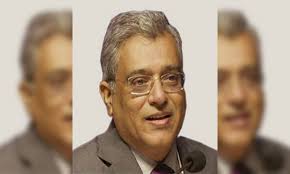Supreme Court judge, Justice P.S. Narasimha has stressed on the independence of judiciary, saying that an independent judiciary was the foundation pillar for the intertwining of democracy, Constitution and the rule of law.
Speaking during the Singhvi-Trinity-Cambridge Scholarship Award 2023, Justice Narasimha said that in order to have a thriving democracy in a country, it was important to uphold the independence of judiciary.
Noting that maintaining the rule of law was the bedrock of a thriving democracy, Justice Narasimha said the same would be diluted if the independence of the judiciary was not upheld.
He said the independence of judiciary was interconnected through constitutionalism and the rule of law. They were both dependent on each other through the concept of separation of powers.
As per the Supreme Court judge, this separation of powers was the accepted principle on which any dynamic form of government existed.
He said if the independence of judiciary was compromised, then the concept of government itself would come under threat.
Justice Narasimha observed that only independent judges could act as oversight over the acts of the government.
He said the framers of Indian Constitution had anticipated the independence of judiciary as a post-colonial democratic concept.
As per the Apex Court judge, a system which ignored either of the two concepts could not make much progress.
Talking about the majority regime playing an instrumental role in the independence of judiciary, Justice Narasimha said that political theorists, jurists and thinkers have disagreed with this basic understanding of democracy.
The jurist said that certain values and frameworks need to be followed in a society, which confirmed equal rights to all citizens.
Calling the event as a confluence of knowledge and judicial independence, Senior Advocate Abhishek Manu Singhvi said that democracy was not just a system of governance, but a broader social commitment, which valued equality, fairness and justice.
A judiciary working in its independent capacity breathed life into these values, he added.
As per Singhvi, an independent judiciary served as a neutral referee resolving conflicts, not based on the might of the parties but on the might of the law.
Calling an independent judiciary as the lifeblood of democracy, the Senior Advocate said it was essential for accountability and promoted transparency.
Besides guarding the fundamental rights, an independent judiciary upheld the principle of justice for all, he added.
The Singhvi-Trinity-Cambridge Scholarship Award 2023 has been awarded to Jai Chander Brunner of the Jindal Global Law School.
Brunner has completed his Undergraduate degree in Philosophy from the University of Chicago, after which he joined the Jindal Global Law School for a three-year LLB programme.
The award will enable him to pursue a Masters’ Degree Programme in Law at Trinity College, Cambridge.
British High Commissioner to India Alex Ellis and Deputy Director of the British Council in India Michael Houlgate were Guests of Honour at the event.
People from different fields such as politics, law and judiciary graced the occasion.
Those who attended the event included MPs P. Chidambaram, Sasmit Patra and Priyanka Chaturvedi; former SC judge Justice Arjan Sikri; Attorney General for India R. Venkataramani; Solicitor General Tushar Mehta; former External Minister Salman Khurshid and former MP and founding Chancellor of JGU Naveen Jindal.
Besides, several senior judges of the Delhi High Court, a large number of Senior Advocates from the Supreme Court and Cyril Shroff attended the lecture. Advocate Avishkar Singhvi delivered the vote of thanks.


